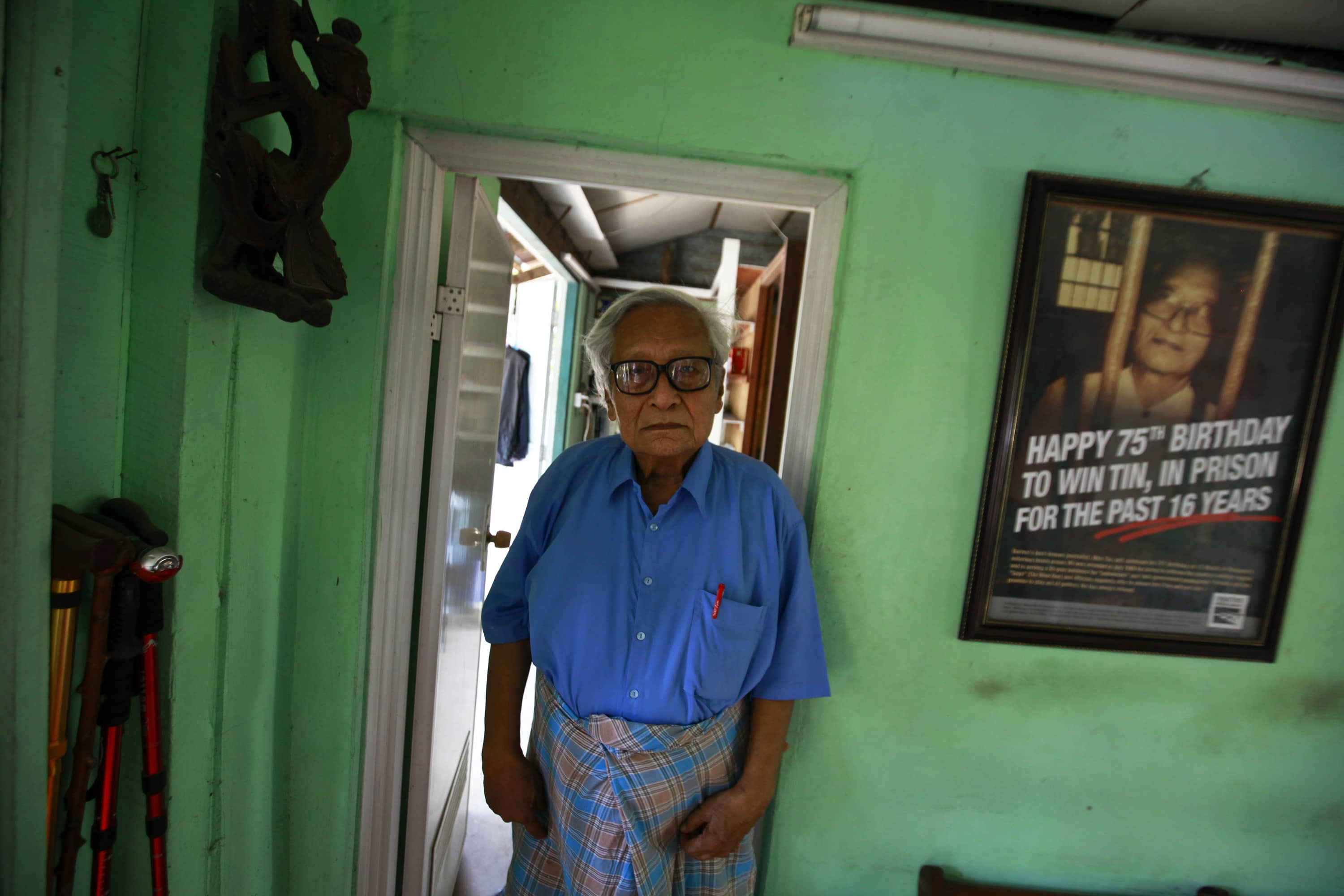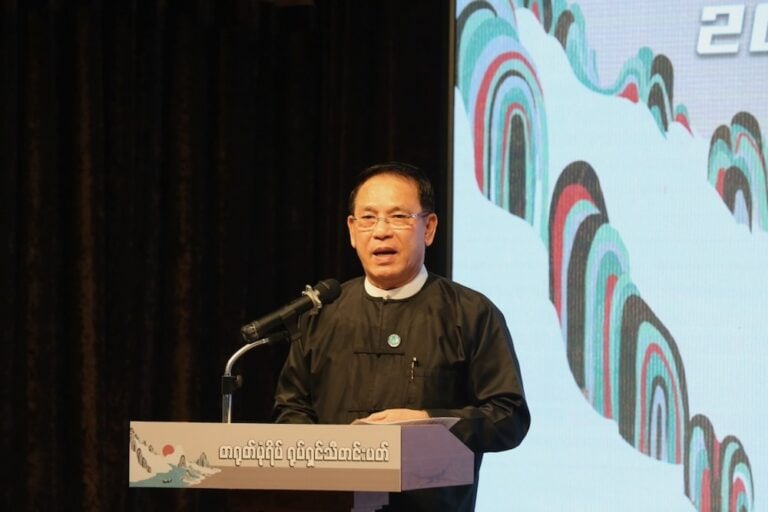Rights campaigners, politicians and many others have added their tributes to U Win Tin's courage, sustained during and after nearly two decades of brutal treatment in jail in Burma.
Thousands of mourners have attended the funeral of U Win Tin, a giant of Myanmar’s democracy movement, in an outpouring of grief for one of the country’s best loved champions of freedom.
Activists, political figures and ordinary citizens crowded Yayway cemetery on the outskirts of Yangon on April 23, 2014 filing past the coffin for a last glimpse of the co-founder of Myanmar’s opposition National League for Democracy.
Many wore blue in a symbolic tribute to U WinTin, who was Myanmar’s longest-serving political detainee under the former junta and who continued to wear a prison blue shirt after his release in 2008 following 19 years in jail.
A memorial ceremony was held earlier in a Yangon church for U Win Tin, who died in hospital in the city early on April 21 at the age of 84.
Mourners, many holding pictures of their hero aloft, described U Win Tin as an inspiration to others in Myanmar, which was ruled by a military junta for nearly half a century before a quasi-civilian regime took
power in 2011.
Political activist La Pyae Way, 28, said all young people should aspire to his ideals and personal sacrifice.
“Whenever there are clouds above, he will always be our blue sky,” he said.
Rights campaigners, politicians and many in the international community have joined the tributes to U Win Tin’s courage during nearly two decades of brutal treatment in jail.
Human Rights Watch executive director Kenneth Roth said he was an “irreplaceable loss for Burma’s human rights community” in a statement using the country’s former name.
“His bravery in the face of cruel hardship continues to echo through Burma’s fragile reform process,” he added.
U Win Tin was a journalist by profession – including a three-year stint as an editor at the Agence France-Presse bureau in Yangon in the early 1950s – but later entered politics in response to the army’s tyrannical rule which began when General Ne Win seized power in a coup in 1962.
He formed the National League for Democracy with Daw Aung San SuuKyi in 1988 in the wake of a student-led democracy uprising that ended in bloodshed.
But he was imprisoned by the military the following year for his political activities and was not released until 2008.
During his incarceration he was interrogated for up to five days at a time, deprived of sleep and adequate medical treatment, hooded and beaten.
But he kept writing and was unflinching in his criticism of the military regime from the moment of his release.
Daw Aung San Suu Kyi penned a short note in homage to her longtime ally, praising him as the “pride of the country, pride of humanity”, said a release by the NLD.
The Nobel laureate, who was herself released from a total of 15 years under house arrest in 2010, now leads her party in Myanmar’s parliament after a wave of reforms under a new quasi-civilian government that took power in 2011.
But the army retains huge power in Myanmar, casting doubts over Daw Aung San Suu Kyi’s chances of becoming president after the 2015 elections, seen as a litmus test of the reforms.
U Win Tin consistently voiced caution about the pace of change in Myanmar, explaining in an interview with AFP last year that he wore a blue shirt in solidarity with dissidents still held in jail and to show the world that his country was not yet truly free.
“I feel like I’m still in prison,” he said.
Despite his steadfast loyalty to Daw Aung San SuuKyi, he was not afraid to voice disagreement – a rare attribute in a party where many are awed by “the Lady”.
“The only dissent comes from me,” he told AFP last June.



